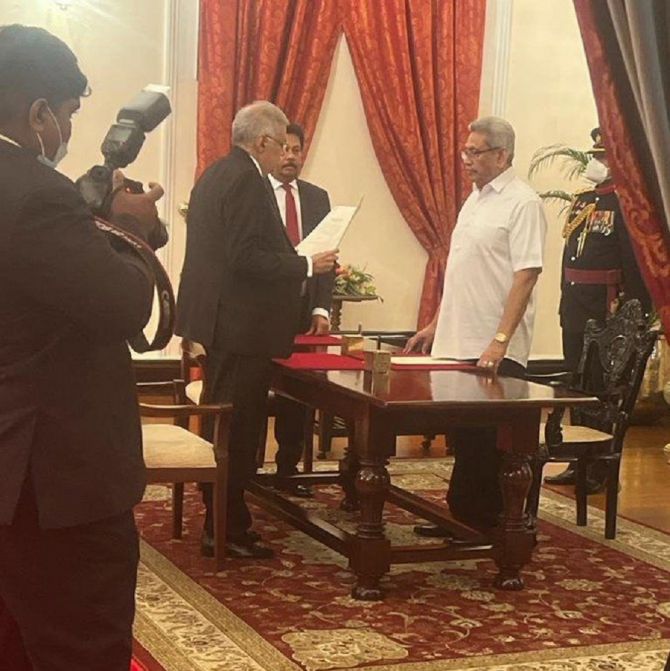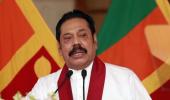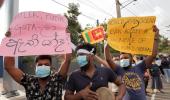Opposition leader Ranil Wickremesinghe was on Thursday sworn-in as Sri Lanka's new prime minister, days after his predecessor Mahinda Rajapaksa resigned following violent protests over the worst economic crisis in the debt-ridden island nation.

The 73-year-old United National Party leader was appointed as the prime minister by President Gotabaya Rajapaksa after they held closed-door discussions on Wednesday.
Wickremesinghe, who has served as the country's prime minister for four times, was in October 2018 fired from the post of prime minister by then President Maithripala Sirisena. However, he was reinstalled as the prime minister by Sirisena after two months.
Members of the ruling Sri Lanka Podujana Peramuna, a section of the main Opposition Samagi Jana Balawegaya and several other parties have expressed their support to show majority for Wickremesinghe in Parliament, sources said.
The UNP, the oldest party in the country, had failed to win a single seat from districts, including Wickremesinghe who contested from the UNP stronghold Colombo in the 2020 parliamentary polls.
He later found his way to Parliament through the sole national list allocated to the UNP on the basis of cumulative national vote. His deputy Sajith Premadasa had led the breakaway SJB and became the main Opposition.
Wickremesinghe is widely accepted as a man who could manage the economy with far-sighted policies, and is perceived as the Sri Lankan politician who could command international cooperation.
Sri Lanka is facing its worst economic crisis since gaining independence from Britain in 1948. The crisis is caused in part by a lack of foreign currency, which has meant that the country cannot afford to pay for imports of staple foods and fuel, leading to acute shortages and very high prices.











 © 2025
© 2025